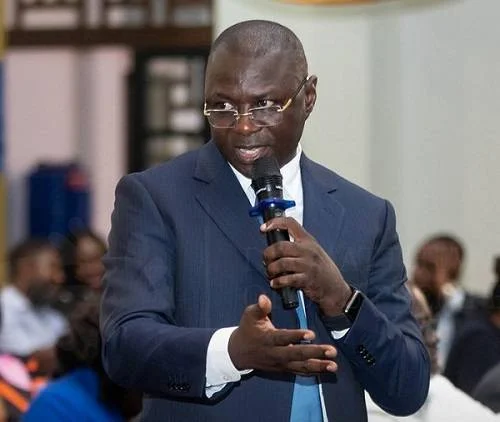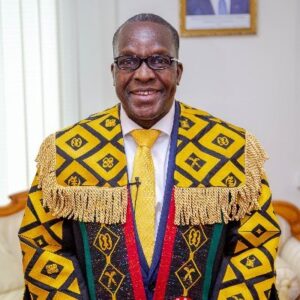Debt Restructuring and IMF Programmes Were Key Achievements of My Tenure – Dr. Amin Adam

Dr. Mohammed Amin Adam Anta, Ghana’s former Finance Minister, has emphasized that the successful execution of the country’s IMF program stands as one of the most significant achievements during his time in office. Speaking on Joy News’ PM Express on Wednesday, Dr. Amin Adam shared insights into how his tenure in the Ministry of Finance, both as Minister of State and later as the substantive Minister, shaped his perspective on economic management and policy execution.
Reflecting on his journey, he explained how his initial experience as Minister of State provided a valuable learning opportunity. “Serving as Minister of State in the Ministry of Finance allowed me to witness firsthand the critical processes within the ministry, including how economic analysis was conducted and interpreted,” he stated. He further acknowledged how this experience played a pivotal role in informing his decisions when he later became the Finance Minister.
Dr. Amin Adam explained that during his time as Finance Minister, he approached the nation’s economic challenges with urgency, particularly in areas that required immediate attention, such as the restructuring of Ghana’s debt and its negotiations with the IMF. “What I did was build upon the work that had been done before me, while also injecting a sense of urgency into policy implementation,” he noted. “I spent a considerable amount of time working with the IMF on the successful implementation of the IMF program, as well as focusing on debt restructuring, particularly concerning the euro bonds. These were critical milestones in Ghana’s history, and I took them very seriously.”
He emphasized that the successful engagement with the IMF was a critical turning point for the country’s economy, and he expressed pride in Ghana’s ability to pass three consecutive IMF reviews. “One of the major success stories of my tenure is the implementation of the IMF program, which saw us pass three successful reviews. The most recent of these reviews took place on December 2,” Dr. Amin Adam shared. This success was a clear indicator of the progress Ghana had made, given the global economic challenges the country faced.
Dr. Amin Adam also addressed criticisms from former President John Dramani Mahama, who had previously commented on the state of the economy. Mahama had claimed that Ghana’s economy was struggling when he left office, and he had called for a national economic dialogue. Dr. Amin Adam expressed concern over such statements, questioning how such conclusions could be made when international financial institutions had given Ghana’s economic performance a positive evaluation. “When I hear President Mahama say that he inherited a struggling economy, it concerns me. He’s calling for a national economic dialogue, but where is he coming from? Was he on Mars?” he remarked. “The IMF gave a positive evaluation of Ghana’s economy just on December 2, and it was an assessment from the very same IMF that President Mahama’s government also consulted. The IMF judged the economy positively, so it’s puzzling to hear claims of economic distress.”
Dr. Amin Adam’s reflections highlight his belief that the reforms and strategies introduced during his tenure laid the foundation for Ghana’s path toward economic recovery. He emphasized that despite the turbulence faced by the country in recent years, the successful implementation of the IMF program played a key role in stabilizing the economy, restoring market confidence, and ensuring macroeconomic stability.
He underscored that the debt restructuring process and the positive outcomes from the IMF program helped to create the necessary conditions for Ghana to regain the confidence of international investors. As a result, Dr. Amin Adam believes that the steps taken during his time in office have positioned Ghana for future growth, despite the ongoing economic challenges.
Dr. Amin Adam’s tenure as Finance Minister is marked by a series of key achievements, with the successful execution of the IMF program and debt restructuring efforts being at the forefront. His actions, grounded in a sense of urgency and strategic decision-making, have played a major role in stabilizing Ghana’s economy during a challenging period, providing a strong foundation for future economic recovery and growth.





